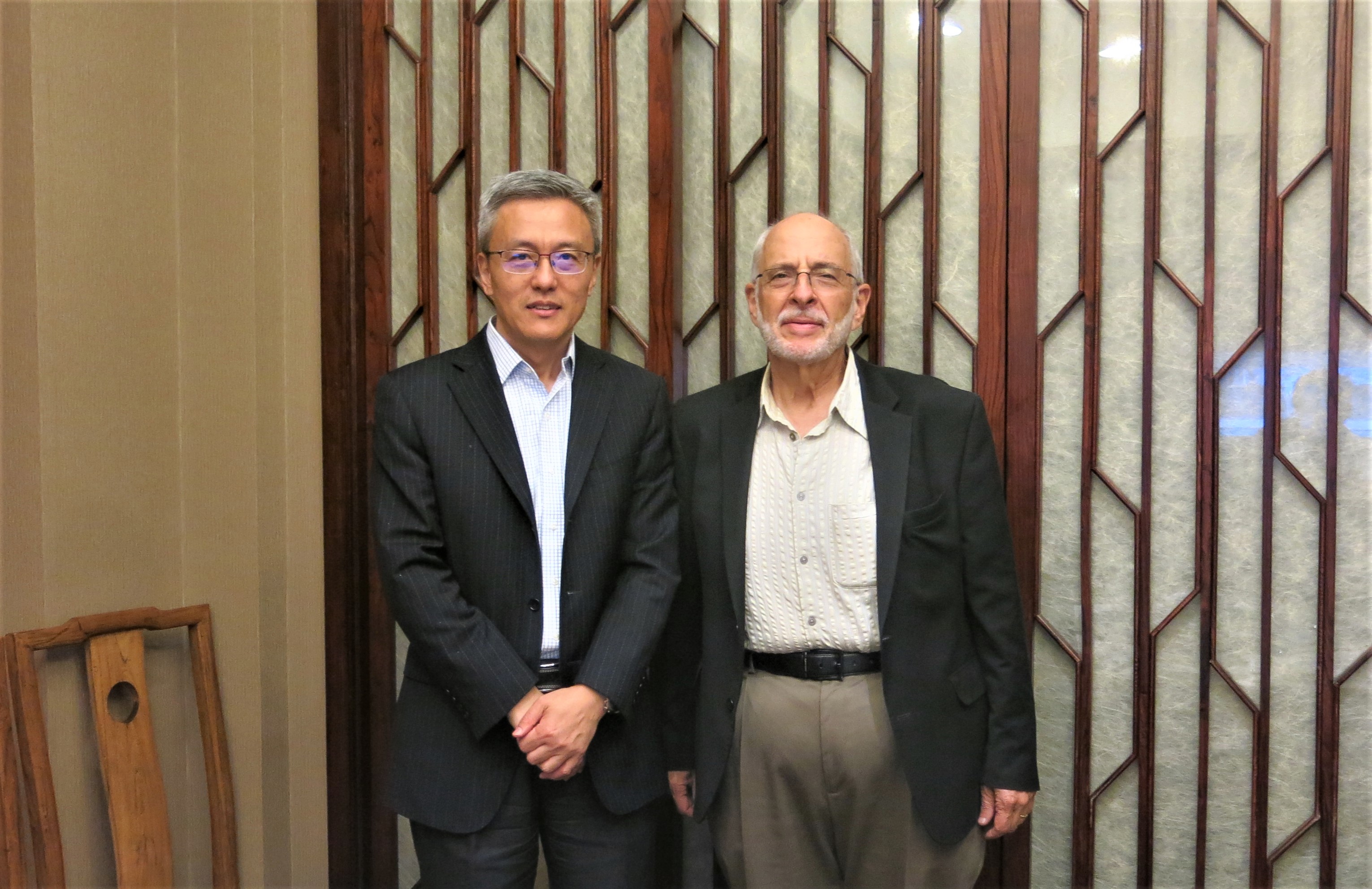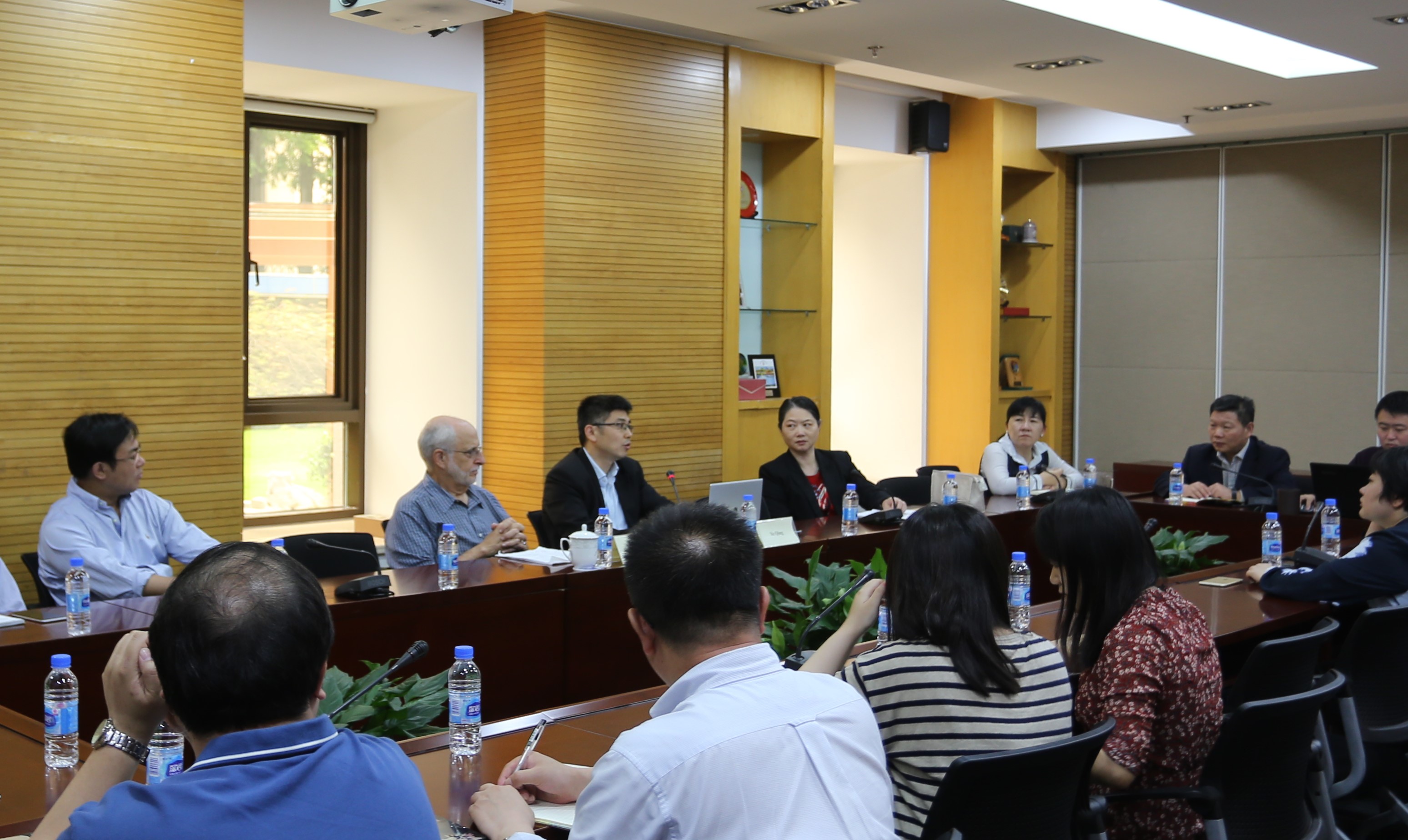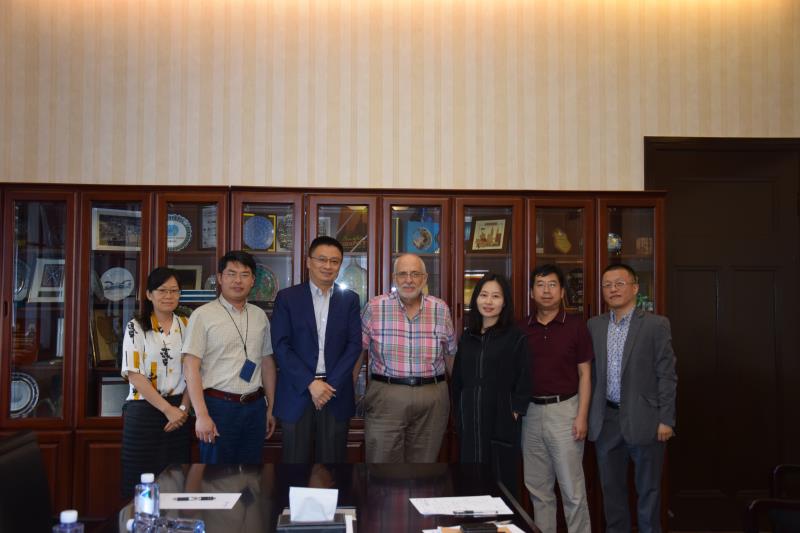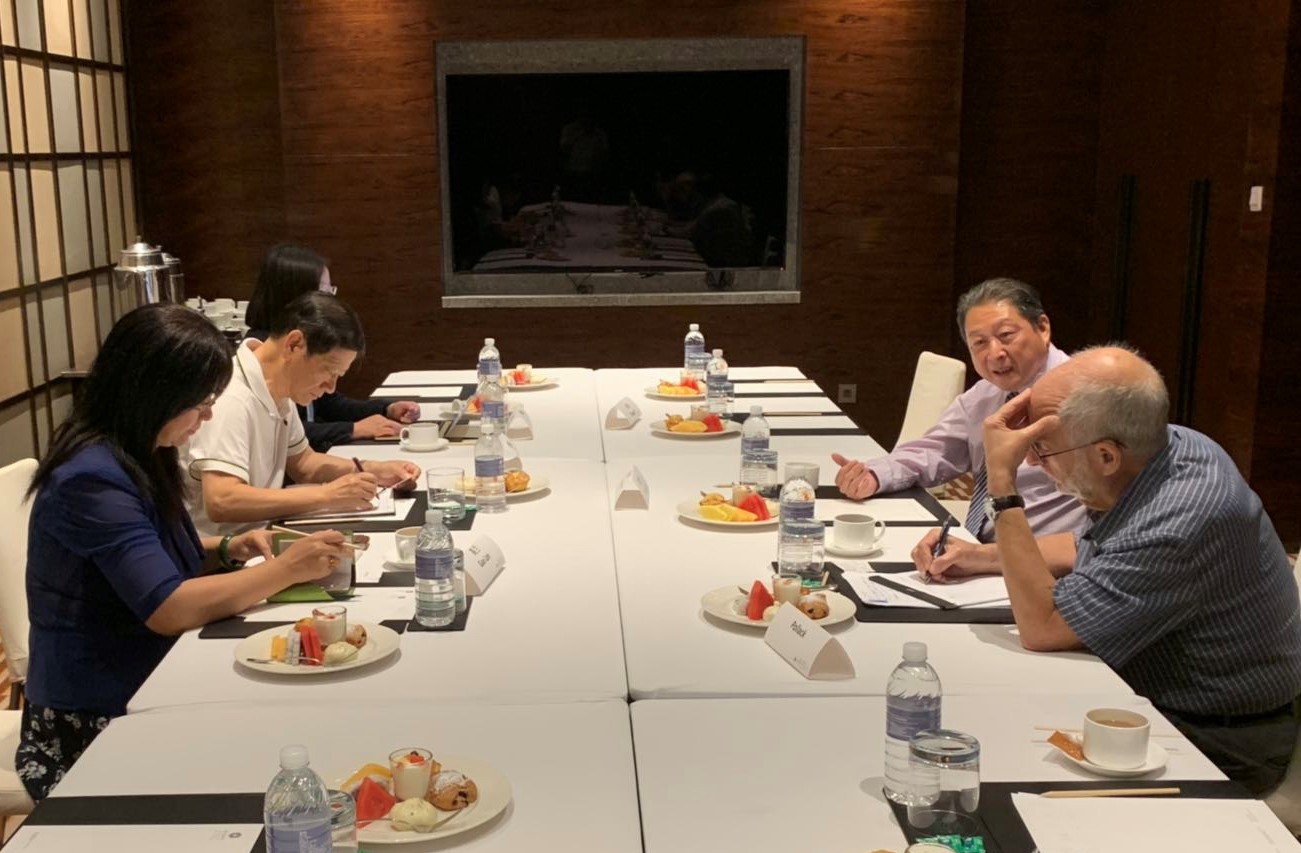At the Invitation of Shanghai Institutes for International Studies,Professor Jonathan D. Pollack, Non-Resident Senior Fellow in the Center for East Asia Policy Studies and in the John L. Thornton China Center at the Brookings Institution visits Shanghai and Beijing as visiting scholar of SIIS from June 19 to 28, 2019.


On June 20, Professor Chen Dongxiao, President of SIIS and Professor Yang Jiemian, Chairman of Academic Council of SIIS meet with Professor Pollack respectively and have a discussion on the perspective of China-US relations.

On June 20, Dr. Shao Yuqun, Director of Institute for Taiwan, Hong Kong & Macao Studies chaired a roundtable discussion with Professor Pollack on China-US relations and presidential election, participated by Dr. Zha Xiaogang and Dr. Xue Lei.

On June 21, Professor Pollack gives a lecture on “Thinking About Stability and Instability in East Asia”to SIIS research fellows including members of Institute for International Strategic Studies, Institute for Global Governance Studies, Institute for Foreign Policy Studies and Center for Asia-Pacific Studies. The lecture is presided by Dr. Ye Qing, Assistant President of SIIS.

On June 24, Professor Pollack gives a public lecture on“How Worried Should We Be About Future US-China Relations?”The lecture is chaired by Dr. ZhaXiaogang, Deputy Director of Department of Research Management of SIIS and participated by members of Center for American Studies, young research fellows and graduate students.

On June 25, Dr. Wu Chunsi, Director of Institute for International Strategic Studies chaired a roundtable discussion with Dr. Pollack on security situation in North East Asia and Korean Peninsula, participated by Dr. Gong Keyu, Deputy Director of Center for Asia-Pacific Studies and Dr. Xue Chen.





In addition to above-mentioned events held at SIIS, Professor Pollack also visits Institute of International Relations of Shanghai Academy of Social Sciences, School of Political Science and International Relations of Tongji University, China Institute for International Studies, Peking University and China Institute of Contemporary International Relations.
